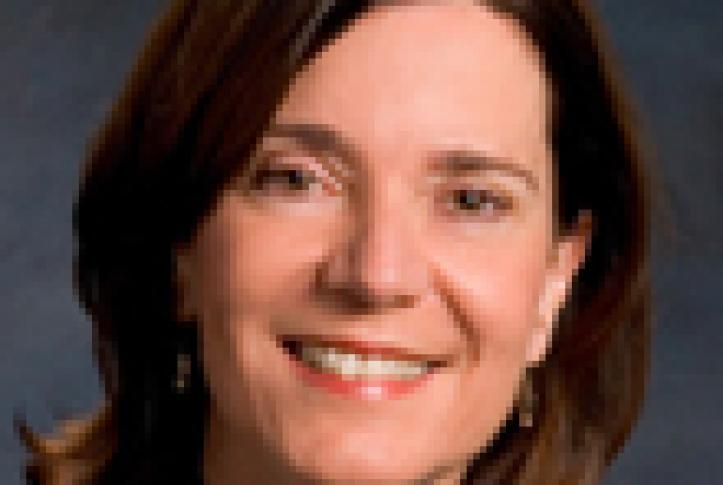Medi-Cal, California's Medicaid program, is an integral part of the state's health care system. More than 6.8 million Californians—nearly one of five residents—rely on the program for health care coverage.
Like Medicaid programs throughout the country, Medi-Cal does health care's heavy lifting—providing coverage when financial barriers, disease, or disability keep individuals and families out of employment-based or private health coverage. Over its 40-year history, Medi-Cal has improved access to care for low-income uninsured Californians and helped to reduce health disparities across gender, ethnic, geographic, and income lines. And, like other Medicaid programs, rising costs threaten the program's long-term financial and political viability, pushing us to find ways to ensure that we deliver maximum value for the public funds invested.
Rising Program Costs Threaten Viability
California spends more than $34 billion per year in taxpayer funds on behalf of Medi-Cal members. Medi-Cal expenditures constitute more than 14 percent of state funds, second only to K-12 education funding in the state budget. Since 1998-99, state expenditures for the Medi-Cal program have increased by 73.4 percent ($5.4 billion), with much of the increase due to a 34 percent rise in the number of persons covered by the program (an additional 1.7 million people).
A recent study by the Public Policy Institute of California (PPIC) projects that, without structural reform, Medi-Cal expenditures will grow 8.5 percent annually for the next 10 years, outpacing the projected 6 percent growth rate for state revenue. PPIC estimates that Medi-Cal's costs will grow to 19 percent of overall state spending in 2010 and to 21 percent of all spending in 2015.
History of Support for Publicly Financed Coverage
California policymakers have a long history of supporting efforts to provide heath coverage to low-income residents. This is evident in the broad eligibility and comprehensive coverage provided through Medi-Cal and the State Children's Health Insurance Program (S-CHIP).
Gov. Arnold Schwarzenegger has continued this support. In the face of significant budget pressure and at a time when many states have been forced to scale back their Medicaid programs, the governor provided full funding for caseload increases, maintained eligibility levels, and added funding for a renewed commitment to outreach to children. California's most recent state budget included an additional $1 billion in health care expenditures. To contain long-term costs, the governor proposed increased use of organized delivery systems.
High-Quality Cost-Effective Care
Policymakers continue to challenge us to examine our program structure, financing methodologies, and operational activities. To remain financially and politically viable, Medi-Cal must maximize the value of program expenditures by delivering high-quality health care in the most cost-effective settings. To achieve this goal, we are doing the following:
- Improve access for members through the use of organized delivery systems, which provide better access and health outcomes to members. More than 3.5 million Medi-Cal members are enrolled in managed care plans.
- Focus on quality improvement. Since Medi-Cal's 1999 adoption of Health Plan Employer Data and Information Set (HEDIS) performance standards, California has seen significant health plan improvements in well-child visits, childhood immunization rates, adolescent well-care visits, prenatal care, and postpartum care.
- Ensure that eligible people know about the program and how to enroll. California will invest over $16 million this year to provide application assistance to new Medi-Cal and S-CHIP applicants.
- Lead the nation in our work on cultural and linguistic access with member information in 12 languages.
- Ensure that state–federal public financing continues to support our health care safety net. California's recently approved hospital financing waiver provides $18.4 billion, with $3.3 billion in new federal funds over five years for 146 safety net hospitals.
- Obtain the lowest possible prices on prescription drugs. Medi-Cal has negotiated rebates with drug manufacturers that provide an additional 10 percent savings on the 23 percent savings provided by the federal rebate program. California will collect approximately $540 million in pharmaceutical supplemental rebates in 2005–2006.
- Aggressively prevent and detect provider fraud. Recent studies demonstrate that Medi-Cal has a high rate of success in preventing fraud and reducing errors.
We recognize that the Medi-Cal program operates within the context of the broader health care delivery system. The viability of that system is threatened by the same cost pressures that impact the Medi-Cal program. Identifying strategies to reduce overall health care cost inflation is central to our efforts to ensure the viability of Medi-Cal.
As we look to the future, promising opportunities to contain costs and maximize value in the health care delivery system include the use of electronic health records and other changes in provider payment practices that will improve our ability to track health outcomes and service patterns and address health disparities. Likewise, increased use of organized delivery systems, including managed care for seniors and persons with disabilities, will result in improved access, care management, and outcomes for vulnerable populations.
Our mission is to promote and protect the health status of nearly 7 million Californians; our challenge is to do so in a manner that demonstrates value to policymakers and taxpayers.
Sandra Shewry is the director of California's State Department of Health Services.
The views presented in this commentary are those of the author and should not be attributed to The Commonwealth Fund or its directors, officers, or staff.
